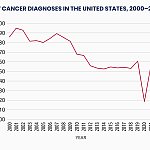
Researchers estimate that about
Medically known as hypertension, past research shows that this condition can increase a person’s risk for several medical issues, including cardiovascular conditions like heart attack, stroke, and heart failure, as well as metabolic syndrome,
“Hypertension is the leading modifiable risk factor for cardiovascular disease and premature death worldwide,” Jiang He, MD, MS, PhD, professor of epidemiology, internal medicine, and neurology, chair of epidemiology, and director of implementation research at the University of Texas Southwestern Medical Center told Medical News Today.
“Observational epidemiological studies have shown that individuals with hypertension face approximately a 40% increased risk of developing dementia compared to healthy controls,” said He.
He is the first author of a new study recently published in the journal
For this study, which is part of the China Rural Hypertension Control Project (CRHC) conducted over 48 months, researchers recruited more than 33,000 adults ages 40 and over with uncontrolled high blood pressure living in rural villages in China.
The 326 villages involved in the study were randomly assigned to one of two intervention groups. The intervention group received medications for their high blood pressure, as well as guidance on making healthy lifestyle modifications — including reducing dietary sodium, losing weight, and reducing alcohol intake — as well as how to monitor their blood pressure at home and adhere to their medications.
Participants of the control group, called the “usual care” group, had their blood pressure monitored by their primary care physician. They also received training in blood pressure management.
“Anti-hypertensive treatment has been associated with a lower risk of dementia compared to untreated hypertension,” He said. “Several randomized controlled trials have examined the effect of antihypertensive medications versus placebo on dementia risk in patients with hypertension or a history of stroke.”
“These trials reported a nonsignificant reduction in dementia associated with antihypertensive treatment,” the researcher noted. “Therefore, definitive evidence supporting blood pressure reduction as a strategy for the primary prevention of dementia in hypertensive patients remains insufficient.”
At the study’s conclusion, researchers found that participants in the intervention group achieved greater blood pressure control than the control group.
Additionally, scientists reported that serious adverse events were significantly lower in the intervention group compared to the usual care group.
He detailed:
“Over 48 months of intervention, systolic blood pressure was reduced by 22 mmHg [millimeters of mercury] and diastolic blood pressure by 9 mmHg in the intervention group compared to the control group. Additionally, 68% of participants in the intervention group, compared to 15% in the usual care group, achieved blood pressure levels below 130/80 mmHg. These findings indicate that nonphysician community healthcare providers, under physician supervision, can effectively manage patients with hypertension.”
He and his team also found that participants in the intervention group who lowered their blood pressure reduced their all-cause dementia risk by 15% and cognitive impairment risk by 16%.
“These findings suggest that blood pressure reduction is associated with a reduced risk of all-cause dementia and mild cognitive impairment,” He said.
“Dementia has become a major global public health challenge due to its high and rising disease burden. It is the fifth leading cause of death worldwide and places significant financial and emotional strain on patients, caregivers, and society. In the absence of curative treatments, the primary prevention of dementia through risk factor reduction has become a public health priority,” the researcher explained.
“Anti-hypertensive treatment can prevent dementia in patients with uncontrolled hypertension,” he continued. “Given the high prevalence of uncontrolled hypertension worldwide, this effective intervention should be widely adopted and scaled up to reduce the global burden of dementia.”
MNT had the opportunity to speak with Cheng-Han Chen, MD, a board-certified interventional cardiologist and medical director of the Structural Heart Program at MemorialCare Saddleback Medical Center in Laguna Hills, CA, about this study.
“This randomized trial found that intensive blood pressure control — through both lifestyle changes and through medications — can reduce someone’s risk of developing dementia in the future,” Chen commented. “These results further reinforce our advice to keep high blood pressure under control, not only to avoid cognitive issues in the future, but also to prevent a multitude of other conditions including heart disease, stroke, and kidney disease.”
“To help keep blood pressure under control, we recommend that people eat a healthy balanced diet low in sodium, engage in regular physical activity, get an adequate amount of quality sleep, maintain a healthy weight, avoid alcohol and tobacco, and reduce stress,” he continued. “If lifestyle changes are not enough, sometimes one or more medications might be needed.”
“These results should drive further public health efforts to screen for and intervene on hypertension in the community,” Chen added.





